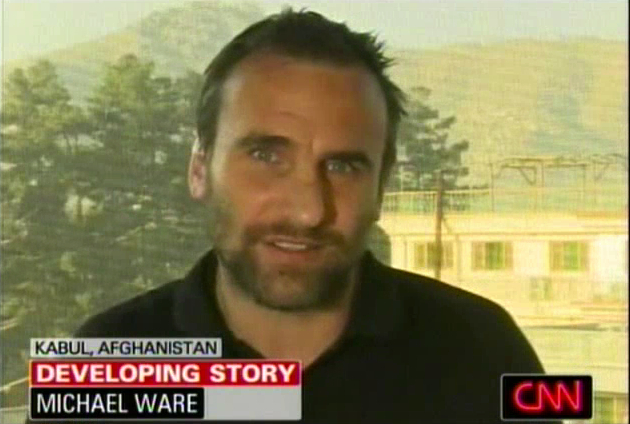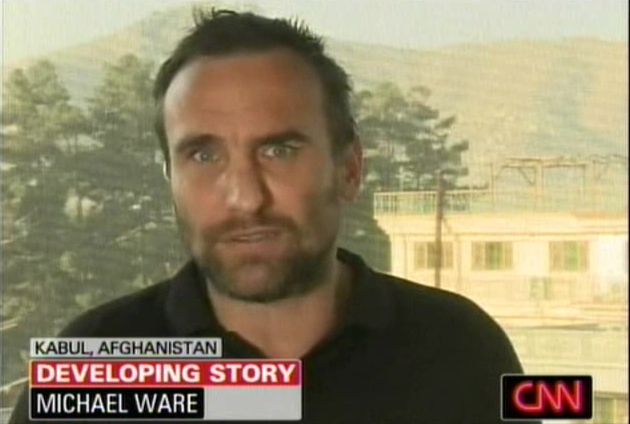SAM: "US-backed militias of the kind that we saw defeat al Qaeda in Iraq."

Length: 0:31
LARGE (6.1 MB) ----- SMALL (666 KB)
Two short sound bites that were played on Saturday Morning -- when the first one was on, I thought it might be a preview of the GPS interview, but at the end of the second one, he says "Anderson," so it looks like these were outtakes from the interview used for the "Inside the Battle Zone" special.
MICHAEL WARE, CNN CORRESPONDENT: Well, I hope it accomplished a lot, but I suspect it's just a drop in the bucket. I mean, the size of this country, the terrain involved -- I mean, this is the end of Himalayas. Can you imagine the mountain peaks and the valleys? Three thousand troops get swallowed up in just one small valley.
Now, if they're IED specialists, I'd imagine they'll be sprinkled across the country. They're going to help find a lot more before they blow up, but there's still plenty more out there. Three thousand, quite frankly, is next to nothing.

Length: 1:09
LARGE (13.4 MB) ----- SMALL (1.4 MB)
MICHAEL WARE, CNN INTERNATIONAL CORRESPONDENT: The U.S. military is considering an option. The Afghan government has already picked it up and has a pilot program under way. It draws on the lessons from Iraq.
The American troops on the ground are not going to get the tribes. What's going to get the tribes is a bigger political solution with the Afghan government. So now what we're seeing is the beginning of a program to recruit tribal militias that will fight the Taliban. U.S.-backed militias of the kind that we saw defeat al Qaeda in Iraq.
Once America took the insurgents, put 103,000 of them on the U.S. government payroll, the war stopped almost overnight. And these men knew where al Qaeda slept and just walked in and whacked them. That's what they are now looking at doing here.
If the tribal forces, if the warlords, the militias say, "No Taliban in my area," there will be no Taliban in that area. And that's what America is now considering to fill this enormous vacuum, this enormous gap between what's needed and what America has here in country.
